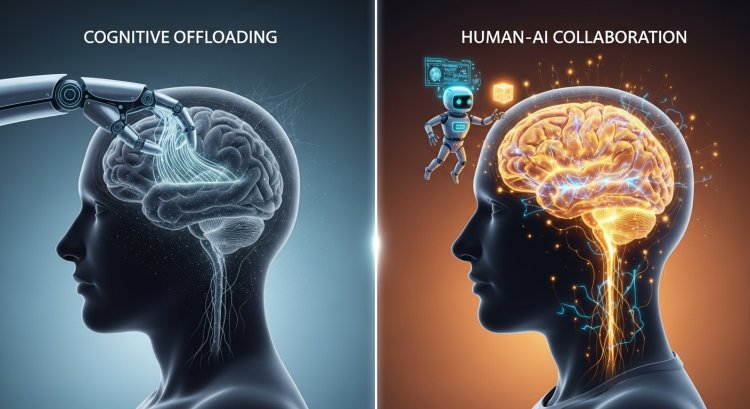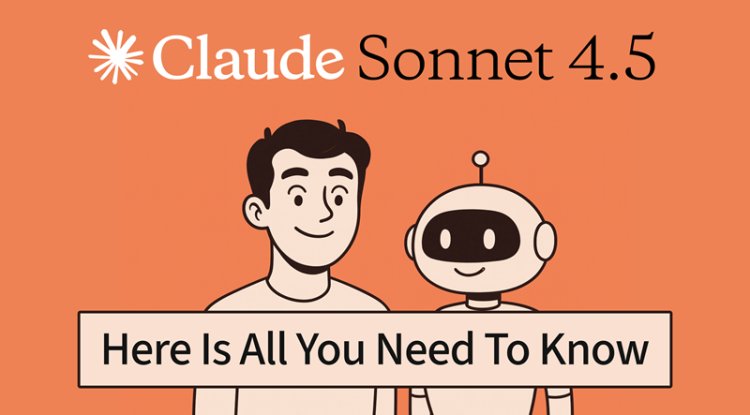AI Causes Reduction in Users' Brain Activity – MIT Study Explained
A new MIT study reveals AI causes a reduction in users’ brain activity. Learn what 'cognitive offloading' means and how to use AI smartly to stay sharp

We're all using AI tools like ChatGPT more and more. They're amazing for writing emails, brainstorming ideas, and just making life easier. But have you ever stopped to wonder if there's a downside to all this convenience? What's this new tech actually doing to our brains?
Well, some fresh research just came out, and it's pretty eye-opening. A June 2025 study from the prestigious MIT Media Lab found that AI causes a reduction in users' brain activity. It sounds a bit scary, but don't worry. We're going to break down exactly what that means in simple terms and talk about how you can keep using AI without turning your brain to mush.
First, What Did the MIT Study Actually Find?
So, a team of researchers, including Dr. Nataliya Kosmyna, looked at what happens inside our heads when we use generative artificial intelligence. The results were super interesting.
Here's what they discovered:
- Less Brain Work During Writing: People who used AI to help them write showed way less brain activity. The parts of the brain that handle deep thinking, memory, and connecting ideas were just quieter. It's like their brain decided to sit back and let the AI do all the heavy lifting.
- Memory Took a Hit: The study also noticed that relying on these tools was linked to lower memory scores. Another long-term study even found that heavy ChatGPT users had the lowest brain engagement and didn't perform as well on thinking and language tasks.
- Critical Thinking Skills Dropped: When you can get an answer in seconds, you don't spend as much time thinking deeply about a problem. Other studies have shown that using AI too much can get in the way of our ability to think for ourselves and question things.
What is 'Cognitive Offloading' Anyway?
Okay, so the big idea behind all this is something called "cognitive offloading." It doesn't sound very easy, but it's actually super simple.
Think of it like this: Do you have your best friend's phone number memorized? Probably not. You have them in your contacts. Your phone remembers the number, so you don't have to. That's cognitive offloading! You're handing over a small mental job to a piece of tech.
This isn't always a bad thing—it frees up brain space! However, the MIT research suggests that when we offload too much of our deep thinking to AI, our cognitive skills can get rusty from lack of use. It's like a muscle; if you don't use it, it gets weaker.
The Secret is Balance: Using AI the Smart Way
Now for the good news! This doesn't mean you have to delete your AI accounts. The key is not if you use AI, but how you use it. Researchers agree that finding the right balance is very important.
- The Good Way: Using AI to handle boring, slow tasks can be a lifesaver. It can help you organize your thoughts or give you a starting point for a big project. This frees up your mental energy for the more creative and complex parts of your work.
- The Risky Way: The trouble starts when we rely on AI to do all the critical thinking for us. If you're letting it write entire reports or make important decisions without your input, you're not exercising your brain.
The goal is to create a partnership. Think of it as a "human-AI collaboration," where the AI is your helpful assistant, not your replacement.
How to Keep Your Brain Sharp with AI
Getting this set up is super simple. Here are a few easy habits you can build to make sure you're using AI to become smarter, not lazier.
Step 1: Use AI as a Starting Point, Not the Finish Line
Instead of asking AI to "write a report on sales trends," try asking it to "give me five key topics to cover in a report about sales trends." Use it for brainstorming and outlining, but you do the actual thinking and writing. This keeps your brain in the driver's seat.
Step 2: Always Fact-Check and Edit
Never copy and paste! Read through what the AI gives you. Is it accurate? Does it make sense? Can you say it better? By editing and refining the AI's output, you force your brain to engage, think critically, and add your own unique value.
Step 3: Do Some Tasks the Old-Fashioned Way
Make a point to do some thinking tasks completely on your own. Once in a while, write out a project plan by hand or brainstorm ideas on a whiteboard without any tech. This is like taking your brain to the gym and ensuring your core cognitive skills stay strong.
A Very Important Note on Tech
The point of this research isn't to make you afraid of new technology. Artificial intelligence is an incredibly powerful tool that can help us achieve amazing things. It's just a reminder that we need to be mindful of how we use it.
Being in control of the tech, instead of letting the tech control us, is the best way to move forward. We can enjoy all the benefits of AI while keeping our minds sharp and engaged.
The Bottom Line
So, there you have it. The new MIT study is a fascinating look at how AI affects our brains. Relying on it too much can make our thinking skills lazy, but that's not the whole story.
When you use AI as a partner—a tool to help you brainstorm and automate the boring stuff—you get the best of both worlds. You get the incredible power of AI and the unbeatable creativity of a sharp, active human brain.
Give it a try, and have fun using AI the smart way!
What's Your Reaction?

















